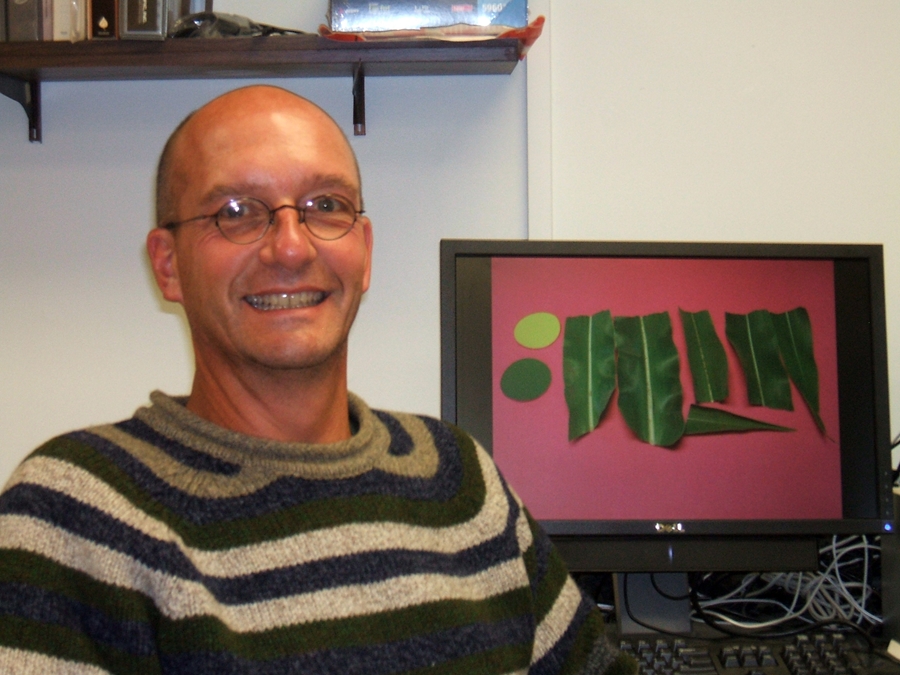
FAYETTEVILLE, Ark. – Larry Purcell, holder of the Altheimer Chair for Soybean Research in the Dale Bumpers College of Agricultural, Food and Life Sciences at the University of Arkansas, has been appointed to an international Scientific Advisory Network created by Plant Impact PIc.
The 10-member network brings together world-renowned scholars and authorities on soybean and wheat crop physiology, biostimulants, agchem, biochemistry and formulation chemistry. Members act as scientific advisers to the Plant Impact research and development team as part of a collaborative network of experts with diverse industry and special backgrounds and a shared goal to help advance innovation in crop enhancement.
Purcell is a professor and crop physiologist in the Bumpers College's Department of Crop, Soil, and Environmental Sciences. His research focuses on genetic differences in the efficiency with which crops use essential resources, particularly water and nitrogen, and how those resources can be managed effectively for crop production. Purcell is recognized as an authority in soybean on the response of nitrogen fixation to drought and for collaborative research developing agronomic drought tolerance.
His role on the advisory team is to advise Plant Impact on possible uses and methods of evaluation of yield-enhancing products in development.
Named a Fellow by both the American Society of Agronomy and the Crop Science Society of America, Purcell has also served as the crop physiology representative on the USDA Soybean Germplasm Committee. He has been at the U of A since 1993.
Purcell earned his bachelor's and master's degrees in agronomy from the University of Georgia in 1981 and 1984, respectively, and his Ph.D. in agronomy from the University of Florida in 1992.
Other members of the Plant Impact network are Felix Fritschi, University of Missouri; Matthew Reynolds, International Maize and Wheat Improvement Centre in Mexico; Patrick Brown, University of California-Davis; Martin Battersby, independent consultant and former head of research and development integrated solutions and head of seed technology at Syngenta; David Evans, independent consultant and former head of research and technology at Syngenta International; Steve McGrath, senior principle scientist at Rothamsted Research; Ian Burns, independent consultant in soil science and crop nutrition; Graham Buckton, independent consultant; and Tim Hunter, lecturer in the School of Chemical and Process Engineering at Leeds University.
Plant Impact's goal is to bring novel and tested crop enhancement products to growers quickly and cost effectively. Each member of the network works with a PI R&D team scientist.
About the Dale Bumpers College of Agricultural, Food and Life Sciences: Bumpers College provides life-changing opportunities to position and prepare graduates who will be leaders in the businesses associated with foods, family, the environment, agriculture, sustainability and human quality of life; and who will be first-choice candidates of employers looking for leaders, innovators, policy makers and entrepreneurs. The college is named for Dale Bumpers, former Arkansas governor and longtime U.S. senator who made the state prominent in national and international agriculture.
About the University of Arkansas: The University of Arkansas provides an internationally competitive education for undergraduate and graduate students in more than 200 academic programs. The university contributes new knowledge, economic development, basic and applied research, and creative activity while also providing service to academic and professional disciplines. The Carnegie Foundation classifies the University of Arkansas among only 2 percent of universities in America that have the highest level of research activity. U.S. News & World Report ranks the University of Arkansas among its top American public research universities. Founded in 1871, the University of Arkansas comprises 10 colleges and schools and maintains a low student-to-faculty ratio that promotes personal attention and close mentoring.
Topics
Contacts
Robby Edwards, director of communications
Dale Bumpers College of Agricultural, Food and Life Sciences
479-575-4625,